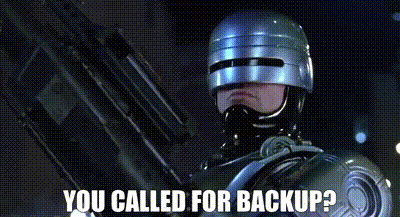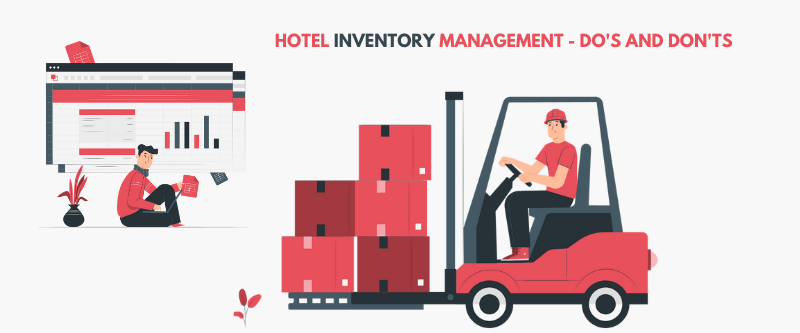It’s no secret that hotels have a plethora of amenities. Be it perishable or non-perishable, the inventory in hotels needs to be maintained for avoiding any kind of inconvenience to guests.
However, managing hotel inventory is an arduous task, and any goof-ups can result in revenue loss.
But, no need to worry. Because in this blog, I will tell you the do’s and don’ts of hotel inventory management, so that you don’t face any loss in your hospitality business.
Table of Content
What is inventory management in the hospitality industry?
Hotel inventory management is basically monitoring, storing, and replenishing stocks of all the assets present in any accommodation facility. It could be room amenities, kitchen equipment, raw materials, furniture, and other such things.
Although room nights are also a type of inventory in hotels, we’ll discuss it in the next blog. For now, let’s stick to the physical assets.
Well, in hotels, mostly the housekeeping supervisor and stores are responsible for inventory management. In some properties, the admin is in charge of raising requisites. However, most hotels allot the housekeeping department the task of managing stocks of all items, except for products required in the F&B area.
With this being said, let’s take a look at some do’s and don’ts you should follow while managing your hotel’s inventory.
What are the do’s and don’ts of hotel inventory management?
I’ve worked in the housekeeping department and stores in the past for a good period. In fact, I got the opportunity to handle the floor pantry, and that’s where I learnt the concept of inventory management.
Based on my experience, let me give you some tips and tricks on what to do and what not to do.
Do’s:
Let’s start with what needs to be done.
1. Sort items in inventory as per category
First of all, start with sorting the inventory according to categories. For example, your hotel’s housekeeping amenities and accessories would be stored in the floor pantry. So, align them in the proper order. Like a section for towels, one for TCM and minbar items, a separate area for cleaning equipment, and so on.
Further, you can use this technique to manage other assets like furniture, equipment, and in-house gadgets (printer, laptop, PC, or tablets).
2. Keep a separate area for discarded and expired products
I know, you might be following this, yet there might be chances that your hotel’s staff might end up doing blunder.
Sometimes they might mix new linen with old ones, or use expired products while replenishing any other room amenities. This can be problematic at times if guests mistakenly consumed any outdated product.
To avoid such situations, focus on the discarding process of your hotel’s each and every department, especially the ones involving consumables.
3. Use technology for maintaining records
It’s no secret that technology has made our lives easier. So, why not use it to manage your hotel’s inventory.
Yes, there are various hotel inventory management systems that can do all such complex tasks for you just like a snap of a finger. They come with API integrations where you can directly put out requisitions to your vendors.
Many of them have inventory regulation systems. Basically, it alerts you whenever you are below the minimum requirement amount of any product.
For instance, you have a property of 15 rooms. You need to have a minimum of 50 towels in stock at any given time for guests’ convenience.
Suppose their shelf life is 6 months, and some of them have reached the threshold limit. So, the system will alert you to discard them and ask you to raise a ticket to your vendor for a batch of fresh towels.
This way, you’d be able to monitor your hotel’s inventory in a hassle-free manner.

4. Maintain essential reports
Hotel inventory management definitely requires a lot of reports to be prepared and managed. Moreover, this has to be done by every department, which makes it difficult to keep a track of each of them.
Although the majority of reports can be maintained using hotel inventory management software, there are some of them which need to be updated manually. Here are some of them for your reference:
- Daily waste/discard report
- Room supply report
- Receivables report
- Housekeeping Pantry Report (daily basis)

5. Audit every day for comparing the loss
I’ve seen many hotels going with inventory audits on a weekly basis. This is followed by raising requisition to stores on weekends, so that they would have stock replenished for the new week.
However, I would suggest doing it on a daily basis. It’ll help you keep track of misuse of any particular amenities. Let me explain with an example.
We all know that TCM is free in every hotel, and that’s why guests ask to keep some extra sachets. As it is complimentary, the housekeeping staff places some extra ones in the room.
Consider if the same is asked by 50% of guests on a daily basis, the quantity would amplify. This means that expenditure over TCM increases gradually, and you’d keep on wondering how this happened.
Hence, when you perform an audit regularly, you can determine such patterns, calculate loss per day, and exercise control over inventory distribution, thereby avoiding a dent on your hotel’s budget.
6. Replenish the stock from time to time
It’s obvious that since you’d be auditing daily, you will be aware of the items running out of stock. But, instead of ordering it at the last moment, get it done when the quantity is exhausted by 75%.
I know, you might be maintaining some extra stock for such emergencies, but what’s the problem in pre-ordering?
You can do this for items having a shelf life of more than 3 months. In that way, even if some products are left, you’ll have a lot of spares.
Don’ts
Now that you know what needs to be done, let me tell you some things you should NOT be doing.

1. Work with a single vendor
If you are relying on a single vendor for every hotel product, it’ll be quite problematic. Even if you are a budget property, operating with minimum amenities, I would advise against depending on a single seller for each one of them.
What’s the harm in keeping a backup?

Ensure you’ve at least 2-3 suppliers for every category of products. Be it linen, raw materials, room amenities, or any other item that forms a part of your hotel’s inventory.
Ensure that you don’t change the brand of the products quite often, as it may affect your guest satisfaction, especially the regular ones.
Also read: How to Pick the Right Hotel Supplier?
2. Order inventory at the last moment
I have this bad habit of putting my phone on charge when there’s just 1% of the battery left. I know it’s odd; but, I can’t help it.
However, this should not be the case with your hotel’s stock maintenance. Ordering things at the last moment can be disastrous as well as can create complications, even if you’ve multiple vendors.
There are various reasons behind this, such as:
- Unavailability of material
- Different brand products
- Expensive rates
- Delivery issues (time, schedule, or any mishap)
So, to avoid any complex situation because of these factors, schedule your requisition twice a week, or as I said above when you are left with 25% stock of any product.
3. Discard without counting
Many times, hoteliers give away any discarded products or items nearing the expiry date to staff for usage. I know it’s a good deed, but it’s vital to keep a count of the same.
It is possible a staff or vendor might use the situation and do foul play. Also, note that such discards are done in presence of the CCTV, security personnel, or an asst. Manager of the department, for maintaining the records.
4. Ignoring the amenities of ancillary departments
Another important don’ts of hotel inventory management is ignoring ancillary departments. For instance, during early morning check-outs, guests prefer a takeaway breakfast. Definitely, it would involve using various disposable cutleries, cling wraps, carry bags, and tissues.
Sometimes guests would ask for extra ketchup, sugar, or jam sachets. This definitely is an additional cost for hotels. Although it may seem they would hardly cost you anything, try looking at the bigger picture and you’ll be astonished at the amount it costs you every month.
Henceforth, include every department while going with your hotel’s inventory management, even if it means including a nut and bolt.
Conclusion
Hotel inventory management is a vast topic, considering each and everything involved in making any property a perfect place for staying. However, when it comes to hotel aspects such as room inventory management, things become complex.
Yet the hotel’s hardworking staff completes this complex task efficiently. To help them work more effectively, I’ve listed the do’s and don’ts of hotel inventory management in this blog.
Implement them right away, and let me know the results you’ve seen in the comments.



